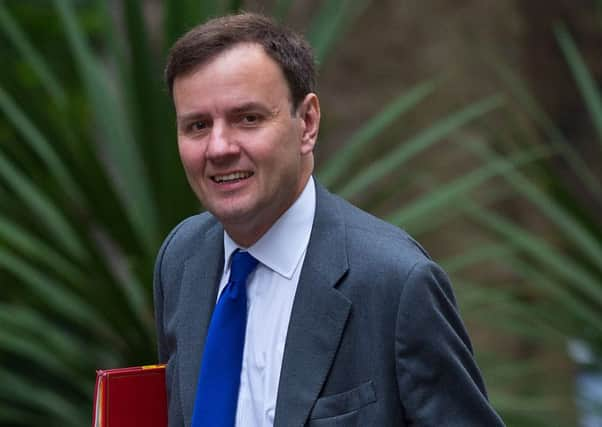Andrew Tickell: Gripped by drama of driving hard bargains


For many commentators this week, negotiation means bluntly stating your position, and maintaining your eye contact and frown until your interlocutor crumbles. It’s seen as a game of positions, not interests; a question of who blinks first. Given the deathly serious consequences of the fiscal framework negotiations and of David Cameron’s efforts to reform the European Union, this outlook is inexcusably daft.
It’s always tempting to turn occasions like this into games of personalities, and their successes and failures into court politics. “Angela doesn’t like David.” “John doesn’t trust Greg.” “Nicola must intervene before it is too late.” “The Prime Minister needs to be in the room.” This temptation to emphasise the personal impact only increases the more the negotiations seems finicky and technical. Important? Certainly – but dull, dull, dull. And the brace of negotiations which have dominated the headlines this week are certainly that.
Advertisement
Hide AdAdvertisement
Hide AdThomas Carlyle, the Edinburgh writer, once suggested that “the history of the world is but the biography of great men.” This emphasis on the triumphs and catastrophes of magnetic, central characters represents a remarkable resuscitation of 19th century ideas.
For Carlyle’s modern followers, the success or failures of the Prime Minister and Greg Hands this week, of the First Minister and John Swinney, has been a trial, not of the issues, and their merits, but of the souls and grit of those involved.
But if we’re prepared to look beyond the pantomime performances of earnest leadership and personal agency, these deals represent collective efforts. They tell us something about the temperaments of the core members of the company, but diplomacy is a social business. The impact and influence exerted by most of the folk who have contributed to any fiscal or European accord will go uncodified.
But the principal negotiators are right to be nervous. Winner or loser? Tough or a squish? The weight of it all, unfairly, rests on the shoulders of the political protagonists. And those protagonists have every reason to present themselves as the triumphant party, as plucky fighters, defending their corner, straining every sinew to force the other side to see sweet reason, and surrender. It is a dumb show.
Whether or not the detail withstands the spin remains to be seen. The content of any European or fiscal deal is unlikely to leak far beyond the committee rooms. Academics will scour through the guts of the accords. Specialists might spot the longer term implications. Civil servants might tut, or smile, at the achievements and failures of their political masters. But overwhelmingly, public reaction to both deals will be shaped by the mercurial trade, practised by press officers and campaign organisers.
And on this score at least, the SNP has reasons to be confident. If a fair fiscal deal can be struck, the Scotland Bill should pass. It contains good and useful powers. But if it is manipulated by a cynical Tory Treasury for party political advantage? If it proves to be a pocket-picking measure? Then no, I’m sorry. No, with regret. Constructively, we cannot consent. Conservative government perfidy is an easy story to sell. It is a story most Scots will not find difficult to believe.
But as ever, Scottish Labour lag behind, insensitive to their own best interests. The fiscal negotiations have been another quiet disaster for Kezia Dugdale’s hobbled party. As Swinney got down to it with the UK government in mammoth sessions over ten days, Labour was frozen out, reduced to “carping from the sidelines”.
In retrospect, this comfortable irrelevance looks less damaging than the boorach Labour have dragged themselves into in their quest for relevance. When talks between the two governments first stalled, Labour’s first reaction was to slam the Scottish Government as a band of wreckers, determined to ruin the Smith compromise cobbled together as the clocks ran down and the nights wore on in November 2014.
Advertisement
Hide AdAdvertisement
Hide AdTheir suspicion was entirely, and tellingly, one-sided. It has gradually dawned on the party leadership that one-eyed mistrust of the SNP isn’t necessarily a good look when faced with the theatrical malevolence of George Osborne, and his factor in these matters, Greg Hands. Now the line is: “I agree with Nicola. We stand up for Scotland too. Kinda.” Subtle, it ain’t. Voters notice these things.
When the technical terms are all paired back, the bottom line is this. The Tories want to “speak for England.” They want to trim Barnett by the back door. Relieved of any need to appeal to the voters of Nottingham or Surrey, the SNP have different ambitions: the best deal going for their electors. And poor old Scottish Labour, gibbering its indyref mantra – pool and share, pool and share – is left, stammering, unfocused, lost, unsure of what they are for, or agin.
And the negotiators? On all fronts, they burn the midnight oil, and scheme, and issue press releases, and order coffee. «